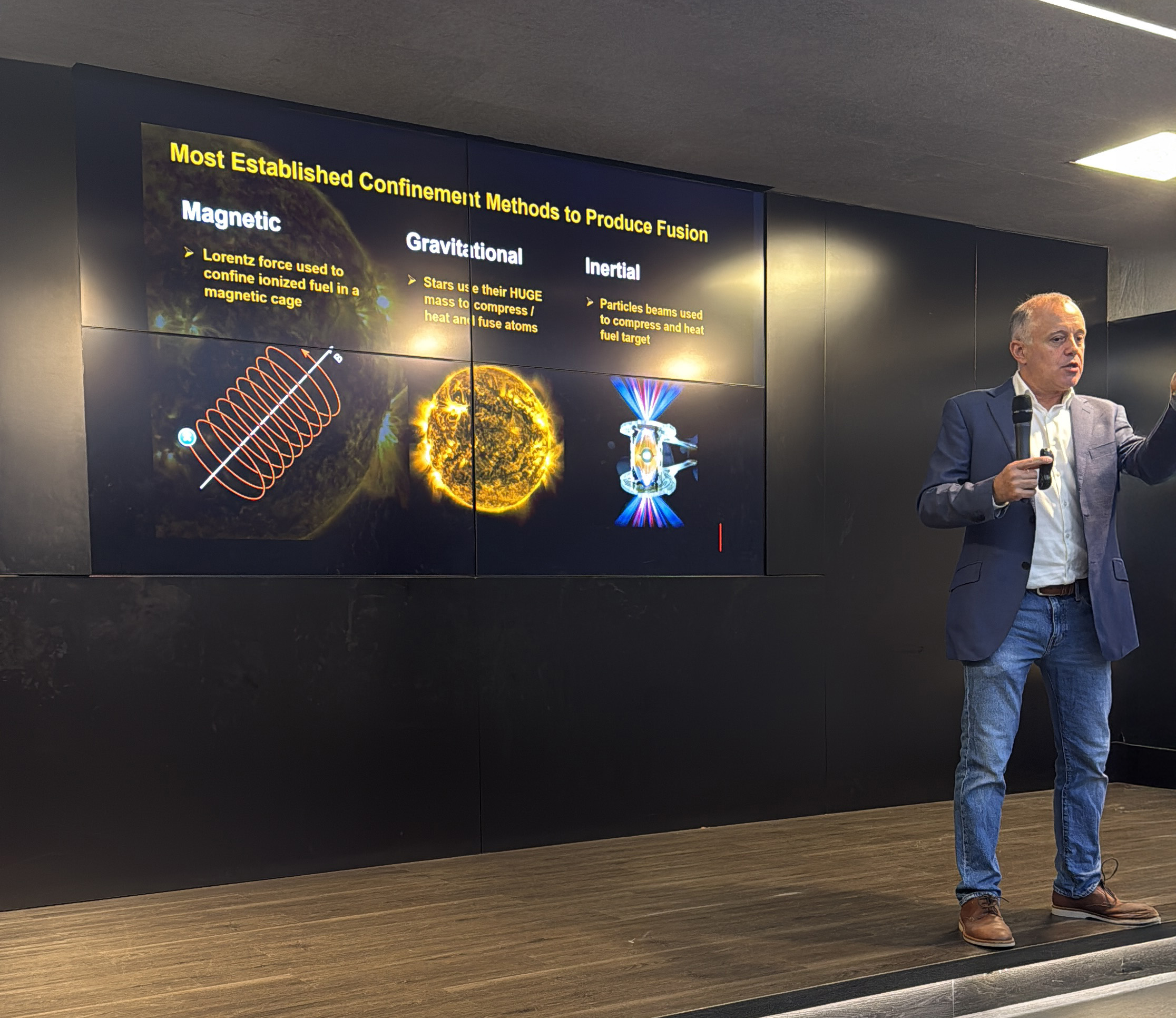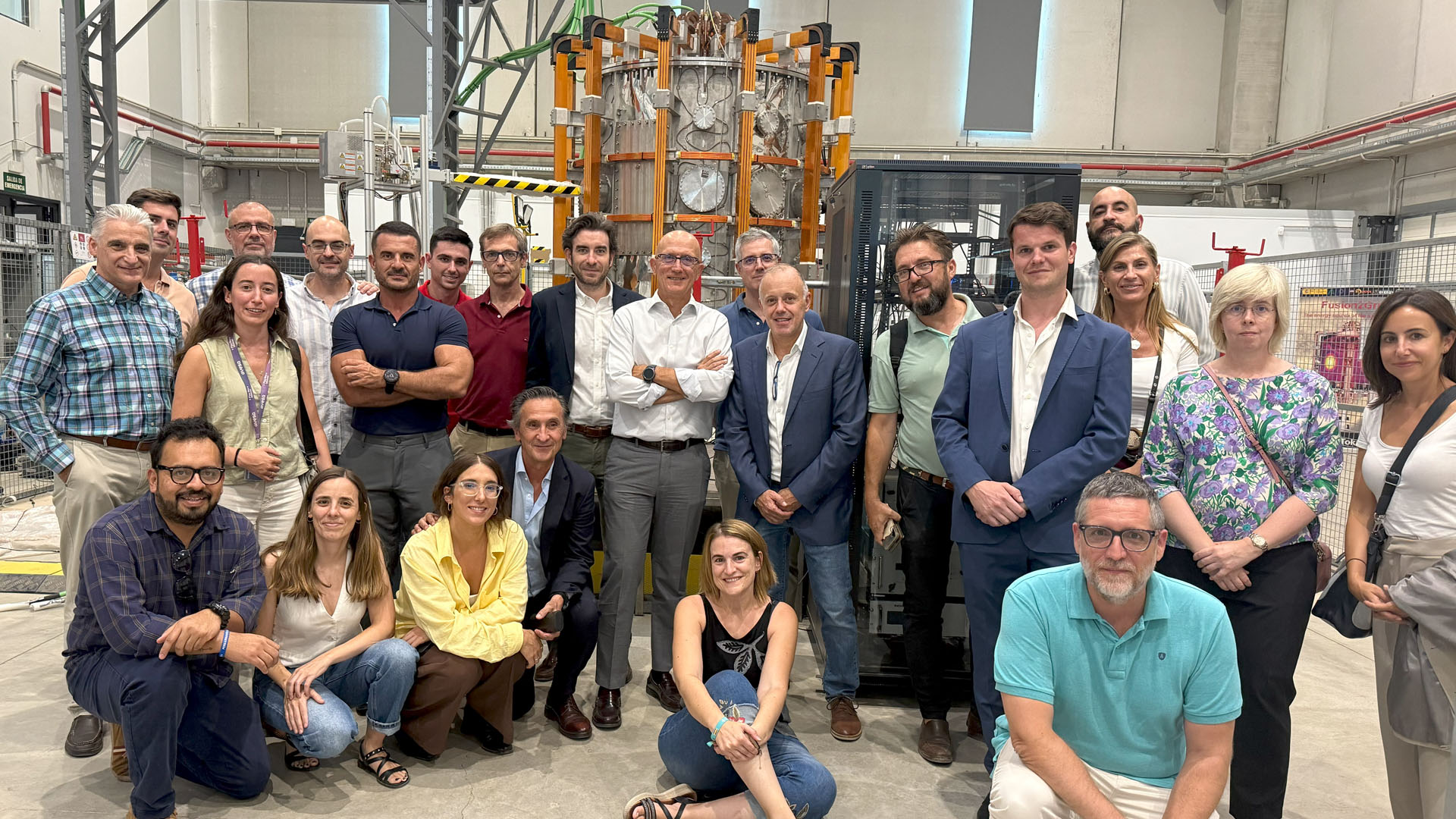September 17, 2025
Ayesa holds workshop on fusion energy driven by its participation in the IFMIF-DONES particle accelerator
Ayesa is overseeing support engineering infrastructure and developing a cyber-physical system to monitor fusion energy plants, with a team of nearly one hundred engineering and technology professionals.
Ayesa, one of the companies involved in constructing the new IFMIF-DONES particle accelerator in Granada, recently hosted a workshop on fusion energy. The aim was to provide context and create synergies among the multidisciplinary teams working on both the OPTIMA-DONES project—developing the cyber-physical system to oversee the fusion energy plant—and the “Infrastructure Support Engineering Services” project. Both are being led by Ayesa.

The event took place at the company’s headquarters in Seville and was attended by over fifty participants, including Ayesa professionals and other partners involved in both projects. Fusion energy was discussed from various angles: its current status and how the new IFMIF-DONES fits into the European scheme, where there are already initiatives like CERN and the ITER project.
The session, led by internationally recognised fusion energy scientists Sehila González de Vicente (CATF), Manuel García Muñoz, C. Guerrero Sánchez and J. González-Martín (Department of Atomic, Molecular and Nuclear Physics at the University of Seville), concluded with a visit to the prototype fusion reactor SMART (Small Aspect Ratio Tokamak) at the University of Seville.

Ayesa’s two key projects
IFMIF-DONES (International Fusion Materials Irradiation Facility – Demo Oriented Neutron Source) is a major research infrastructure designed to provide critical data on the behaviour of materials that will be used in future fusion reactors such as DEMO, the prototype fusion power plant that will succeed ITER.
Ayesa is leading the OPTIMA-DONES research project, with a budget of €6.7 million, aimed at creating a cyber-physical supervision and proactive maintenance system for IFMIF-DONES’s critical systems. Aligned with the “Maintenance 5.0” paradigm, the goal is to maximise safety, availability and lifespan of components and future materials.
Likewise, Ayesa will be responsible for support engineering during the Scientific-Technological Infrastructure Construction Phase of IFMIF-DONES, which will include a 40 MeV deuteron linear accelerator of high intensity, expandable to two parallel accelerators.
Its responsibilities include specific scientific-technological engineering (neutron irradiation systems, liquid lithium circuits, particle accelerator), rapid-response control systems and laboratory automation; full project and systems management; building engineering for the laboratory; logistics and system maintenance; radiological protection measures and remote handling systems in irradiated environments.
Ayesa thereby positions itself as a leading company in the fusion energy sector—a sector that is strategic for Spain and Europe in the journey towards energy autonomy and reclaiming leadership in innovation.
We support your projects
We are here for you, to advise you personally and offer you the product you need.